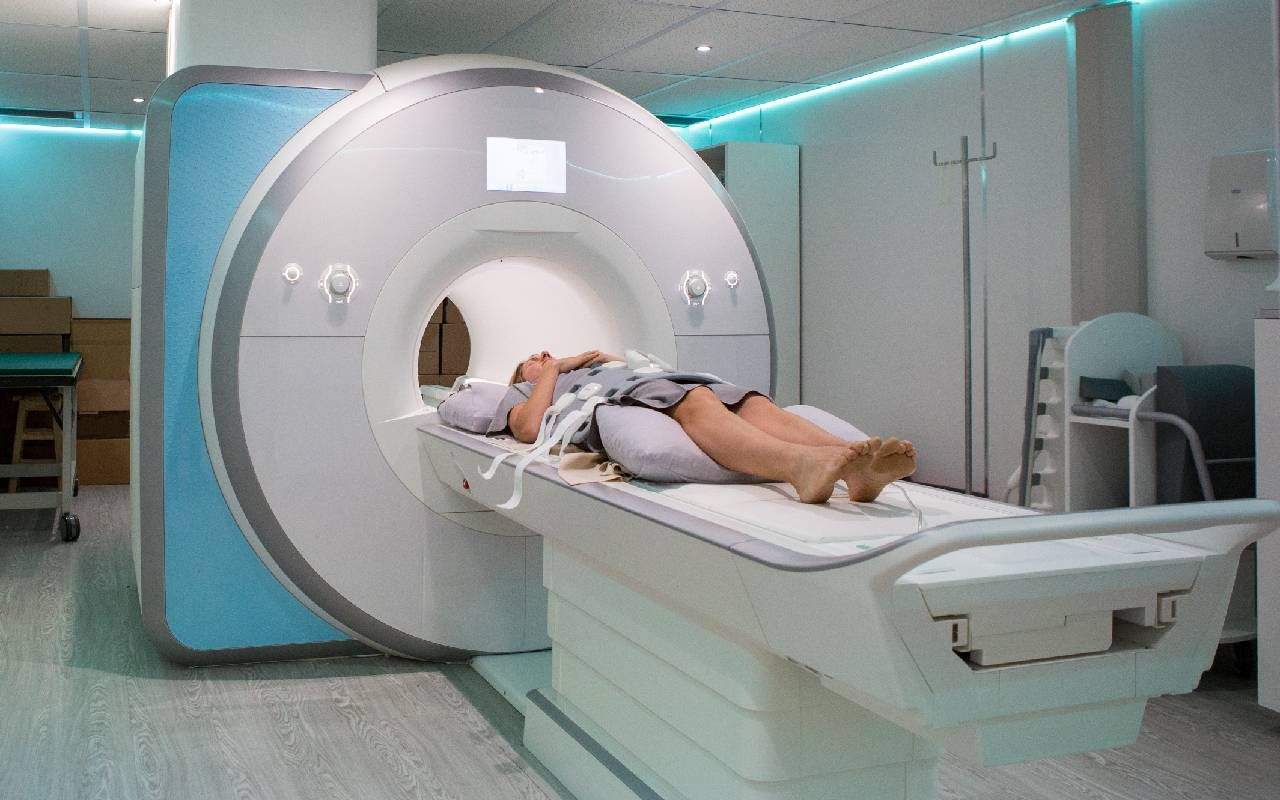Beyond the Hype on Full-Body MRIs
Early disease detection sounds irresistible; are full-body MRIs worth the cost and do they work?
A Full-Body MRI (magnetic resonance imaging) has become the newest status symbol, recently bursting onto the scene with celebrity endorsers like Paris Hilton, Cindy Crawford and Kim Kardashian touting its benefits. What's not to like about a quick screening that claims to save lives by providing early detection of aneurysms and diseases like cancer?

According to many doctors and medical groups, including the American College of Radiology and the American College of Preventive Medicine, a lot. We're taking a look at why this trendy procedure is controversial.
What Are the Benefits?
An MRI typically focuses on one organ or cluster of organs. The scan is ordered by a doctor when a patient is assessed to be at high risk for disease or presents symptoms that call for follow-up. It is considered safer than a CT scan since radio waves and powerful magnets are used instead of radiation to map the observed area.
An MRI typically focuses on one organ or cluster of organs.
As the name implies, a Full-Body MRI applies the same technology to scan the organs and tissues of the entire body in a single imaging session. Since it is an elective procedure, individuals displaying no symptoms or conditions can request a Full-Body MRI without a physician referral.
Why would anyone pay up to $2,500 (health insurance does not provide coverage) to do this? Quite simply, for peace of mind. Companies offering Full-Body MRI tests promote their service as a proactive form of preventative health care. Early detection of over 500 abnormalities, they say, provides the chance for a better quality of life and puts you in charge of your future.
Sam's Story
That certainly turned out to be the case for Sam Hires. A robust and vibrant 72-year-old Los Angeles resident, Hires has diligently maintained a healthy lifestyle his entire adult life. In addition to a healthy diet and solid exercise routine, he has completed nearly 200 marathons.
Companies offering Full-Body MRI tests promote their service as a proactive form of preventative health care.
Although his primary care provider declared Hires the healthiest patient in the entire practice, another physician suggested he receive a Full-Body MRI as a precautionary measure due to his age. Following what was thought to be a preventative scan, Hires received a sobering diagnosis of stage 3 kidney cancer. This early detection saved his life. He has already had surgery to remove the tumors from one kidney and is scheduled to have the same operation on the other kidney soon.
What Are the Risks?
The biggest concern from many physicians and their professional organizations is the risk of the scan picking up an incidental finding known as a "false positive." This is often caused by an abnormality in the patient's anatomy or a harmless cyst or lesion. Irregular breathing and slight movement during the scan can also create a false positive.
"While the intention of Full-Body MRIs is early detection," says Akshaya Srivatsa, co-founder of Care Better, "false alarms can subject patients to emotional distress and additional, sometimes invasive, medical interventions. They may undergo surgeries or treatments based on findings that later prove to be non-specific or benign."
Elle's Story
Elle Oglesby, a 48-year-old mother of four from Plano, Texas, has suffered for years from migraines. Although she had previously undergone several MRI scans for the condition, when the headaches became more severe, she booked a Full-Body MRI based on claims of the machine's superior technology.
Two weeks later, a nurse from the company she used for the procedure called to inform her that the images showed a lesion on her kidney and, more alarmingly, a quarter-sized circle on the left side of her brain. The nurse could not give specific information on the exact nature of the lesions and advised Oglesby to follow up with a neurologist.
False alarms can subject patients to emotional distress and additional, sometimes invasive, medical interventions.
Fearing the worst, she immediately scheduled a dedicated brain MRI. Because she had not met her insurance deductible, this procedure cost another $2,500 on top of the identical amount paid for the Full-Body MRI. Thankfully, the results came back clear, as did an ultrasound of her kidney that determined the lesion was merely scar tissue.
Still concerned that perhaps the Full-Body MRI had detected something serious that the other ones had missed, she tried for two months to speak with the radiologist who read and compiled the results in her initial report. Finally, after getting past customer service, she was informed that speaking with a radiologist would cost an additional $4,000.
'No Evidence-Based Findings'
The prevailing sentiment among physicians is that Full-Body MRIs are not advisable for healthy individuals or those deemed at average risk. "There are really no evidence-based findings to show that Full-Body MRIs in a larger population will save lives," Zhen Jane Wang, MD, chief of abdominal imaging at the UCSF's Department of Radiology and Biomedical Imaging.
A recent survey of 300-plus global physicians on Sermo, a social media platform for the medical community, revealed only 23% of those surveyed believe Full-Body MRI scans are a useful tool for prevention, and 77% said celebrity endorsements mislead the public.
Full-Body MRIs can be a valuable tool in early disease detection. They are, however, expensive and come with the risk of false positive findings. "This underscores the need for informed decision-making," advises Srivatsa, "where patients and health care providers collaboratively weigh the benefits and potential drawbacks."


